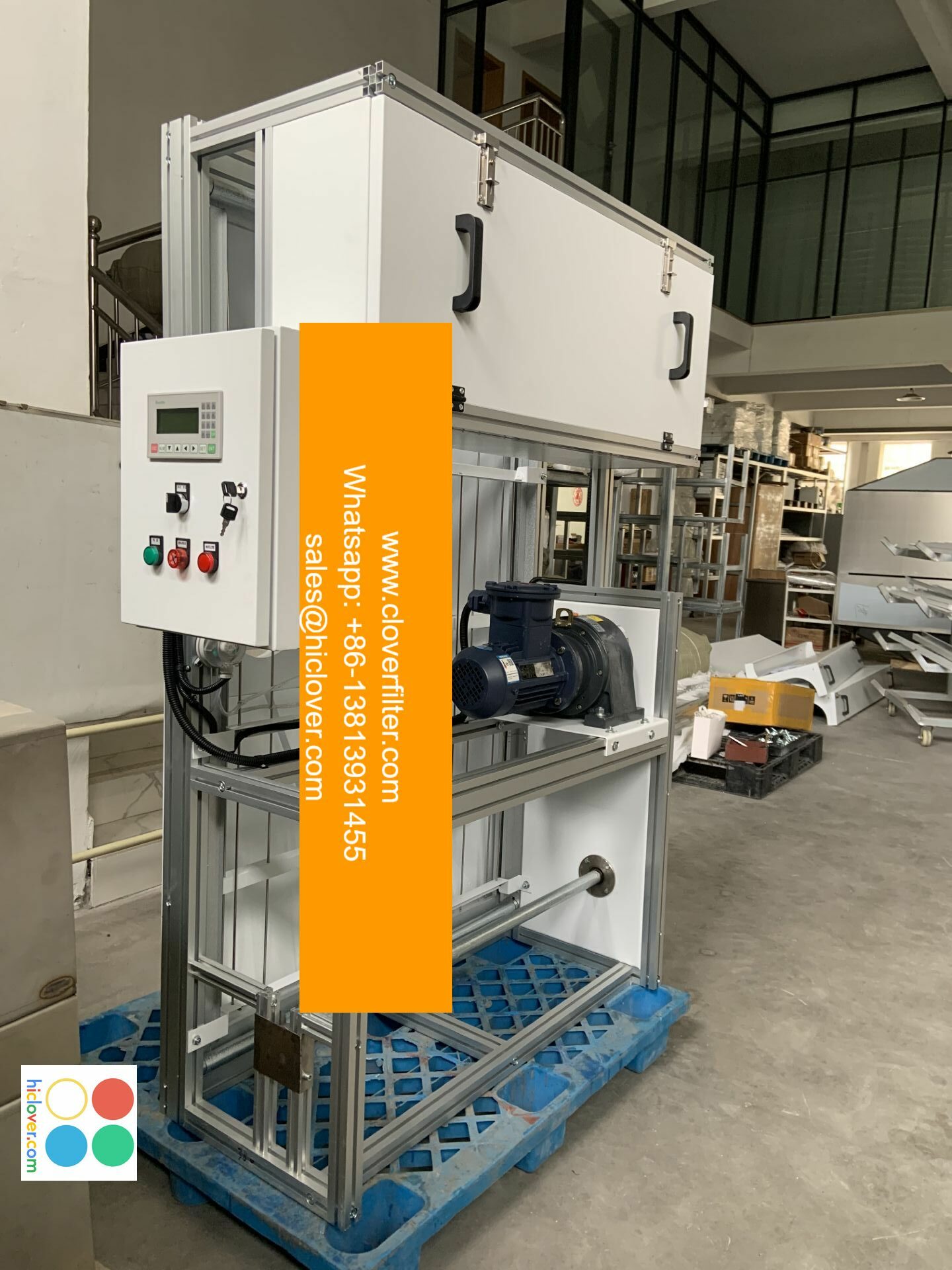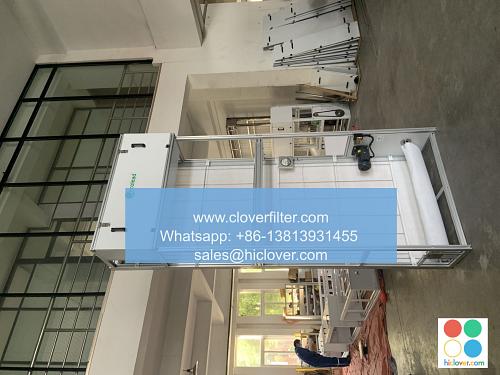The Future of Oil Equipment Production in Alberta: Automatic Roll Air Filters and Beyond

The oil and gas industry in Alberta, Canada, has been a significant contributor to the province’s economy for decades. As the industry continues to evolve and adapt to changing global demands, the production of oil equipment is also undergoing a transformation. One area that has seen significant advancements in recent years is the development of automatic roll air filters. These innovative filters are designed to improve the efficiency and effectiveness of oil production operations, and their impact is expected to be felt across the industry.
Traditionally, oil production operations have relied on manual air filters, which require frequent maintenance and replacement. However, with the introduction of automatic roll air filters, operators can now enjoy improved filtration efficiency, reduced maintenance costs, and increased overall productivity. These filters use advanced technology to automatically roll out new filter media as needed, eliminating the need for manual intervention. This not only saves time and resources but also reduces the risk of human error and downtime.
Beyond automatic roll air filters, the future of oil equipment production in Alberta is expected to be shaped by a range of emerging technologies and trends. One area that is gaining significant attention is the development of more efficient and sustainable oil production operations. As concerns about climate change and environmental sustainability continue to grow, the oil and gas industry is under increasing pressure to reduce its carbon footprint and minimize its impact on the environment. In response, manufacturers are developing new equipment and technologies that prioritize efficiency, reduce waste, and promote sustainability.
Another area that is expected to play a significant role in the future of oil equipment production in Alberta is the use of advanced materials and manufacturing techniques. The development of new materials and technologies, such as 3D printing and nanotechnology, is enabling manufacturers to produce equipment that is stronger, lighter, and more durable than ever before. This is not only improving the overall efficiency and effectiveness of oil production operations but also reducing maintenance costs and minimizing downtime.
In addition to these technological advancements, the future of oil equipment production in Alberta is also likely to be shaped by changing global market trends and demands. As the world transitions towards a more sustainable and renewable energy mix, the demand for oil and gas is expected to decline. However, this does not necessarily mean that the demand for oil equipment will also decline. Instead, manufacturers may need to adapt to changing market conditions by developing new equipment and technologies that are designed to support the production of alternative energy sources, such as wind and solar power.
Furthermore, the future of oil equipment production in Alberta will also be influenced by government policies and regulations. The Canadian government has implemented a range of initiatives aimed at reducing the country’s carbon footprint and promoting sustainable energy production. These initiatives include the introduction of carbon pricing, investments in clean technology, and regulations aimed at reducing methane emissions. As the industry continues to evolve and adapt to these changing regulatory requirements, manufacturers will need to develop new equipment and technologies that prioritize sustainability and minimize environmental impact.
In conclusion, the future of oil equipment production in Alberta is expected to be shaped by a range of technological, economic, and environmental factors. The development of automatic roll air filters and other emerging technologies is expected to improve the efficiency and effectiveness of oil production operations, while also reducing maintenance costs and minimizing downtime. As the industry continues to evolve and adapt to changing global market trends and regulatory requirements, manufacturers will need to prioritize sustainability, efficiency, and innovation in order to remain competitive and successful.
FAQs
Q: What are automatic roll air filters, and how do they work?
A: Automatic roll air filters are innovative filters that use advanced technology to automatically roll out new filter media as needed, eliminating the need for manual intervention. They are designed to improve the efficiency and effectiveness of oil production operations, while also reducing maintenance costs and minimizing downtime.
Q: What role will emerging technologies play in the future of oil equipment production in Alberta?
A: Emerging technologies, such as 3D printing and nanotechnology, are expected to play a significant role in the future of oil equipment production in Alberta. These technologies will enable manufacturers to produce equipment that is stronger, lighter, and more durable than ever before, improving the overall efficiency and effectiveness of oil production operations.
Q: How will changing global market trends and demands impact the future of oil equipment production in Alberta?
A: Changing global market trends and demands, such as the transition towards a more sustainable and renewable energy mix, will require manufacturers to adapt and develop new equipment and technologies that support the production of alternative energy sources. This may include the development of equipment designed to support wind and solar power production.
Q: What government policies and regulations will impact the future of oil equipment production in Alberta?
A: Government policies and regulations, such as carbon pricing, investments in clean technology, and regulations aimed at reducing methane emissions, will require manufacturers to develop new equipment and technologies that prioritize sustainability and minimize environmental impact.


